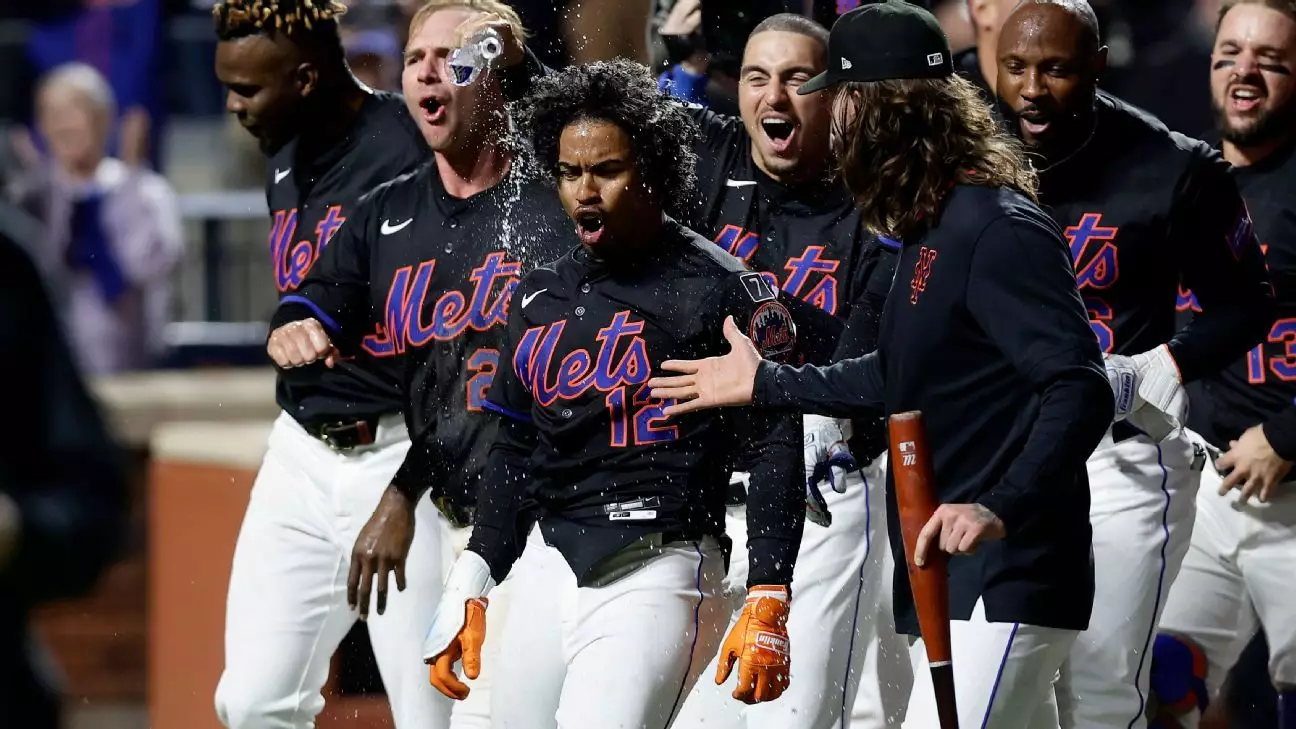The New York Mets, with their storied legacy, have faced trials and triumphs over the years, but rarely has a player embodied the highs and lows of a season quite like Francisco Lindor. Beginning the current baseball season in a dismal 0-for-11 slump, Lindor found himself again grappling with the demons of his notorious slow starts. Yet, rather than succumb to the pressure, a profound electrifying moment transformed his trajectory. When asked what he needed to turn things around, he candidly admitted uncertainty, a moment of vulnerability often absent in the competitive sports arena. It was this humble acknowledgment that made room for change, and fortunately for Lindor, that change was promptly facilitated by Mets hitting coach Jeremy Barnes.
Under Barnes’ guidance, Lindor was reminded that in a game predicated on precision and power, the primary focus should consistently remain on the fundamentals. “Don’t chase hits,” Barnes advised. This mantra boiled down to trusting oneself and seizing the moment. Lindor’s subsequent performance has evidenced the efficacy of this approach, as he has surged back to prominence: boasting a .349 batting average, five home runs, and a staggering OPS of .972—testaments to his rebirth.
From Adversity to Ascent
What makes Lindor’s turnaround particularly compelling is its timing. After the initial three-game series in Houston, he prioritized family by attending the birth of his third child, a move that seemingly recharged him. With an extraordinary blend of athletic talent and personal motivation, Lindor has become a catalyst for the Mets, driving them to an impressive 18-7 record. His renewed approach is reflected in an unshakeable mentality; as he noted, it’s not about doing too much but focusing on what he knows best—his preparation and execution. By trusting in his skills and relying on the prowess of his teammates, Lindor is metamorphosing into the player the Mets envisioned when they extended him a 10-year, $341 million contract.
Amidst challenges, Lindor’s confidence has grown alongside the Mets‘ collective spirit. His resurgence has been a cornerstone to a seven-game winning streak, marked by critical moments such as his clutch three-run homer against the Philadelphia Phillies and his walk-off heroics against the St. Louis Cardinals. He is not just racking up individual accolades; Lindor is thriving while drawing inspiration from those around him, especially his new teammate, superstar Juan Soto, who may wrestle with his own struggles. In essence, Lindor has converted personal adversity into confidence that permeates through his entire roster.
A Leader in Binding Chemistry
Beyond batting statistics, Lindor’s influence permeates into the very fabric of the Mets’ clubhouse. His leadership, marked by acts both big and small, enhances the team chemistry that many great franchises possess yet struggle to maintain. Lindor embodies the essence of a team player, building camaraderie through gestures both on the field—like sprinting to celebrate a teammate’s big moment—and off it, as he cultivates connections through music and morale. The infectious spirit of his walk-up song „My Girl,“ dedicated to his wife and daughters, has transformed into a crowd favorite, bridging gaps and igniting enthusiasm in Citi Field.
Indeed, whereas last season was stained in maladjustment and poorly received boos, this season marks a cultural revival. Lindor noted the stabilizing effect on team dynamics, signaling an organization whose growth is now bearing fruit. By embracing a spirit of positivity, leadership, and dedication, he has catalyzed a rooting for one another that the Mets desperately needed after a tumultuous prior year. With an 8.8 fWAR propelling him to the forefront of National League players over the past year, Lindor’s standout performance isn’t merely a personal victory; it echoes the rising optimism of a team that envisions a World Series run.
Elevating the Game Play by Play
Lindor’s reinforced ability to capitalize on fastballs, coupled with impressive slugging percentages, suggests a player not just playing the game but redefining it. His rich arsenal now includes elite defense, coupled with an ability to dictate game flow—qualities that elevate him from promising talent to high-caliber athlete. Lindor’s relationship with his hitting coaches showcases adaptive learning; it is a potent reminder of the necessity of mentorship in sports. Managers and coaches can only inspire, but it is the player who must execute, and Lindor seems resolved to do just that.
Through this renewed lens, the narrative around Francisco Lindor is changing. It’s no longer only about the multi-million-dollar contract or statistical benchmarks but rather about embracing one’s identity, forging connection with teammates, and creating a compelling narrative built on resilience and triumph. Lindor is not just a shortstop for the Mets; he’s the embodiment of what it means to bounce back, proving that in sports—much like life—opportunities for greatness often surface when we least expect it.


Napsat komentář